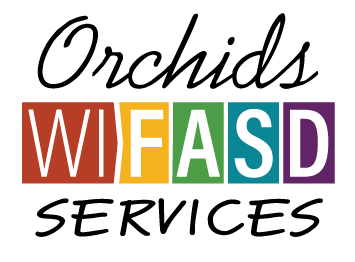TRANSITION
Issues:
- Asking current providers to identify on-going needs and make referrals to continue needed services if this provider’s services have an upper age limit – identify age limits and start referral process 1-2 years ahead of age limit
- Management of Care – identifying needs and coordinating services/providers
- Application and eligibility for adult services – SSI, Long Term Supports
- Residential and daily supervision
- Adult Guardianship – why, when, how
- Adult self-care and safety. Supported decision-making
- Adult school or training programs
- Work
- Social skills and Community participation and safety
HEALTHCARE TRANSITION – Caution! Following guidelines that intend to prepare youth to manage their own healthcare may NOT be appropriate or possible for many people with FASD.
- Article written for healthcare providers for youth in transition describing best practices.
Supporting the Health Care Transition From Adolescence to Adulthood in the Medical Home American Academy of Pediatrics – November 2018, VOLUME 142 / ISSUE 5
- Six Core Elements of HealthCare Transition
https://www.gottransition.org/resourceGet.cfm?id=206
- What Youth and Families need to know about transition
https://www.gottransition.org/youthfamilies/index.cfm
RESIDENTIAL AND DAILY SUPERVISION
- Canada residential program for adults with FASD – Life’s Journey http://fasdlji.ca/
- file:///C:/Users/Jackie/Documents/AAFASDWI/2019%20Projects/EIS_Best_Practices_Support_Youth_FASD.pdf
TRANSITION OUT OF CARE FOR FASD YOUTH
https://cwrp.ca/sites/default/files/publications/en/Report_on_FASD_Transition.pdf
https://cwrp.ca/sites/default/files/publications/en/MB-Youth_with_FASD_Leaving_Care.pdf
My Life With an FASD
https://www.mofas.org/about-fasd/living-on-the-spectrum/
Teens and Adults with FASD
https://www.mcfares.org/teensadults
(content of the McFares webpage):
- Adult diagnosis: Improving outcomes by recognizing an FASD (Dr. Dan Dubovsky)
- Broadening eligibility for supportive services for adults with FASD: IQ ceiling scores are antiquated and unjust
- POV: Teenager living with FASD
- Resources for adults living with FASD (NOFAS)
- Social worker’s guide to working with adults with FASD
- Independent living for people with FASD
- Fostering interdependence (Dr. Dan Dubovsky, POPFASD)
- Think College: College options for individuals with intellectual disabilities
TRAINING NEW STAFF
Lifeguard Strategies for Supporting Teens and Adults with FASD – Print out pages 10-17 of this booklet and have the person with FASD circle the things they want their staff to know about them. http://www.fasdnetwork.org/uploads/9/5/1/1/9511748/lifeguard_strategies.pdf
